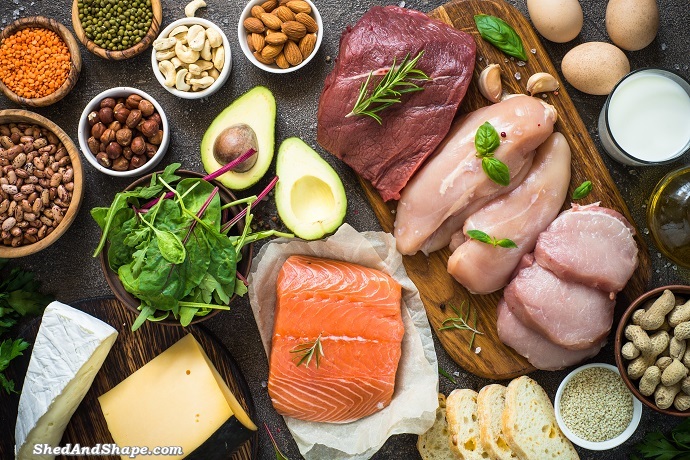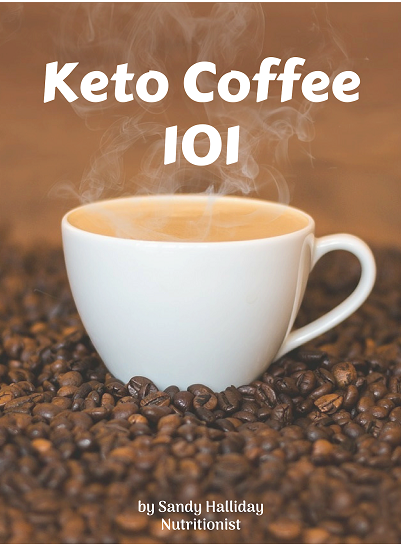Given the many health benefits of protein, this micronutrient should be an essential part of your diet, especially for those following the keto diet. Along with carbs and healthy fats, protein provides your body with essential nutrients to carry out daily activities.
When people start following the keto diet, they will focus mainly on limiting their carbs and increasing their intake of healthy fats. However, protein must not be neglected. In fact, this micronutrient matters a lot in a low carb diet like keto.
Related reading: Keto Diet Fats: Best and Worst To Eat
The amount of protein you eat is just as significant as some other micronutrients. Dietary protein is essential to maintain and protect the structures and elements of the body, including the heart, liver, muscles, and kidneys.
But just how important is protein for the keto diet? Below, let’s take a look into the health benefits of protein for low carb diets like keto.
What is Protein?
Protein is a macronutrient that’s essential to building muscles. It’s commonly found in animals and animal products, although it’s also present in plant sources such as legumes and nuts. According to Victoria Taylor, a dietitian from the British Heart Foundation:
“Macronutrients are the nutrients we need in larger quantities that provide us with energy. In other words, fat, protein and carbohydrates. The body requires large amounts of macronutrients to sustain life. Protein makes up about 15% of a person’s body weight.”
Protein consists of several smaller units known as the “amino acids”. Even though our body can produce most of the 20 amino acids, there are nine that the body cannot produce, and these are the essential amino acids, which we have to consume from food.
Also known as the building blocks of proteins, amino acids play many essential roles in the body. Just as amino acids are the building blocks of proteins, proteins, on the other hand, are the building blocks of muscle mass.
Some keto-friendly animal protein sources include organic/free range poultry, grass-fed meat, low mercury seafood, cheese, and organic eggs. If you’re following a Plant-Based Ketogenic Diet, you can derive your protein from tofu and soy-based products, including most seeds and nuts.
Related reading: Best Nuts to Eat On A Keto Diet
Health Benefits of Protein for Keto
1. Muscle Growth and Repair
As mentioned, protein is an important building block of muscles. So, one of the most important health benefits of protein is to build muscles.
The protein in your muscles is broken down and reproduced daily because a fresh supply of amino acids is needed to produce new muscles. So, consuming a good amount of dietary protein can help to prevent muscle loss, and along with resistance training, can promote muscle growth.
2. Maintains Healthy Skin, Hair, Nails, and Bones
Although the protein turnover in the skin, hair, nails, bones and internal organs occurs more slowly than muscle, a fresh supply of amino acids is needed to replace the old ones that have been damaged over time.
3. Creation of Hormones and Enzymes
Most hormones are essential for our daily life, especially insulin and growth hormones. Both of these are also proteins. In the same way, most enzymes in your body are proteins. Your body relies on a continuous supply of amino acids to produce these essential compounds.
Related reading: Diet for Hormone Balance: Is Keto Best?
If you do not get enough protein in your diet, you could miss out on many critical functions. In addition, several studies suggest that getting enough protein can make it easier to control weight, which helps with your keto diet.
Related reading: Low Carb or Keto For Weight Loss – Which is Best?
The reason could be that proteins can help reduce appetite, preventing overeating. Proteins trigger hormones that promote feelings of satisfaction and fullness, which keeps you from eating more. And compared to fats or carbs, the body tends to burn more calories from protein.
How Much Protein On Keto Should You Eat?
Given all the health benefits of protein in the body, it’s clear by now why we should incorporate protein in keto. In fact, if your primary goal of following the keto diet is to lose weight, you should include protein in your diet.
Related reading: Best Protein for Weight Loss
Several studies suggest that protein is important when trying to lose weight. However, unlike many other low carb diets, keto does not require dieters to consume a higher amount of protein. So, how much protein on keto should you be eating?
The standard keto macros ratio suggests an average of 75% of fats from daily calories, 5% of carbs, and 20% protein. However, experts suggest that the ideal protein requirement is more closely determined based on muscle mass instead of calorie needs.
More Health Benefits of Protein
Protein Leverage Hypothesis
In his recent article for an English newspaper about his Fast 800 Keto plan for weight loss Dr Michael Mosely points out that some researchers from the University of Sydney have coined the phrase the Protein Leverage Hypothesis.
They maintain that we have five appetites for food – one each for protein, fat, carbohydrates, calcium and salt. They have discovered that need for protein dominates the others and drives us to eat until our need for protein is satisfied.
Eat too little protein and you’ll be driven by cravings and likely to over-indulge in all the wrong foods.
The main point of the Protein Leverage Hypothesis is that to satisfy our protein hunger, most of us need to get about 15 to 20 per cent of our calories in the form of protein. Drop below that and your body’s hunger for protein will make you want to eat more.
So, Mosely advises that if you feel hungry on a low carb or keto diet then eating more protein is key.
As mentioned above, protein is crucial for the many vital functions in our bodies. It also serves as an essential building block for almost every cell in your body.
A protein intake of 1.2 to 2.0 grams per kg of body weight is ideal for most people. Protein consumption within this range has been shown to help preserve muscle mass and improve body composition while also providing all the other health benefits of protein.
What Happens If You Eat Too Much Protein in Keto?
Some health experts suggest that since protein can metabolize into glucose, it could interfere with your body’s ability to maintain ketosis. However, this theory needs to be supported by more research.
In fact, if you look into the multiple studies done on the keto diet, you will not find any link between protein intake and the ability of your body to produce ketones.
Related reading: What Are Keto Diet Ketones?
The many health benefits of protein for weight loss will most likely outweigh any impact it could have on ketosis. For as long as you keep your net carbs low and eat a high amount of healthy fats, you should be able to achieve your weight loss goals on keto.
Final Thoughts
With all the health benefits of protein, you should include this macronutrient in your keto diet. But limit your consumption to 20% of your daily calories. Spread it out over your meals in a day and focus on eating healthy and low carb meals.
Related reading: Low Carb Meals for Weight Loss
You can also supplement your intake of protein with keto protein powders. These powders usually include additional ingredients that can help put you into ketosis faster, such as exogenous ketones and MCT oil.










